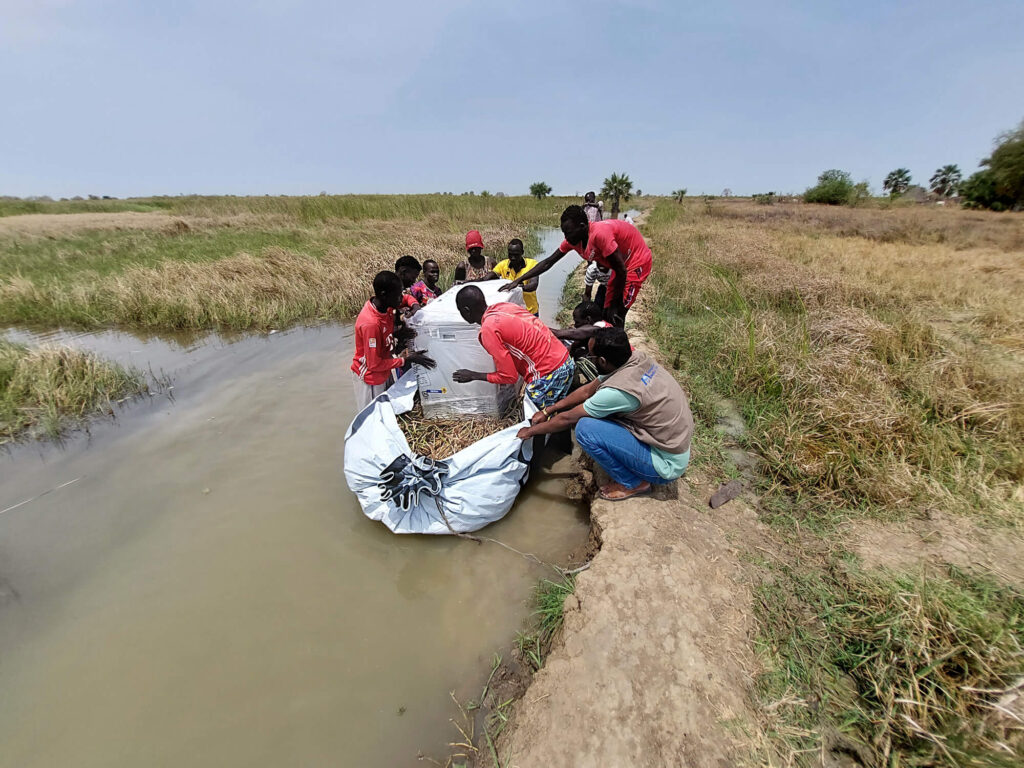Hailu Bekele looked out of the helicopter window, taking in vast fields dry from drought, pale-green treetops and cattle scattered across the landscape in Kurwai, South Sudan, and thinking about his new assignment, more than a thousand miles from home. Though Bekele usually works as a Health Program Coordinator with International Medical Corps in Ethiopia, for three months, he’s been assigned to work with our South Sudan mission as a Field Site Manager in Kurwai, the most remote field site in the country.
To get to Kurwai, Bekele flew from Addis Ababa, Ethiopia’s capital, to Juba, South Sudan’s capital. After meeting with the International Medical Corps team in Juba, he secured a seat on a helicopter traveling from Juba to Kurwai. There’s only one United Nations Humanitarian Air Service (UNHAS) helicopter flight per week, and the trip takes about three hours.
Bekele is one of several International Medical Corps team members who recently traveled from other country missions to different areas of South Sudan to share their expertise and gain valuable insight and experience in another country. Their trips were part of a new project—the Temporary Duty Assignments (TDY) Initiative—supported by David Eastman, Senior Director of International Programs, who arranged the coordination among countries.
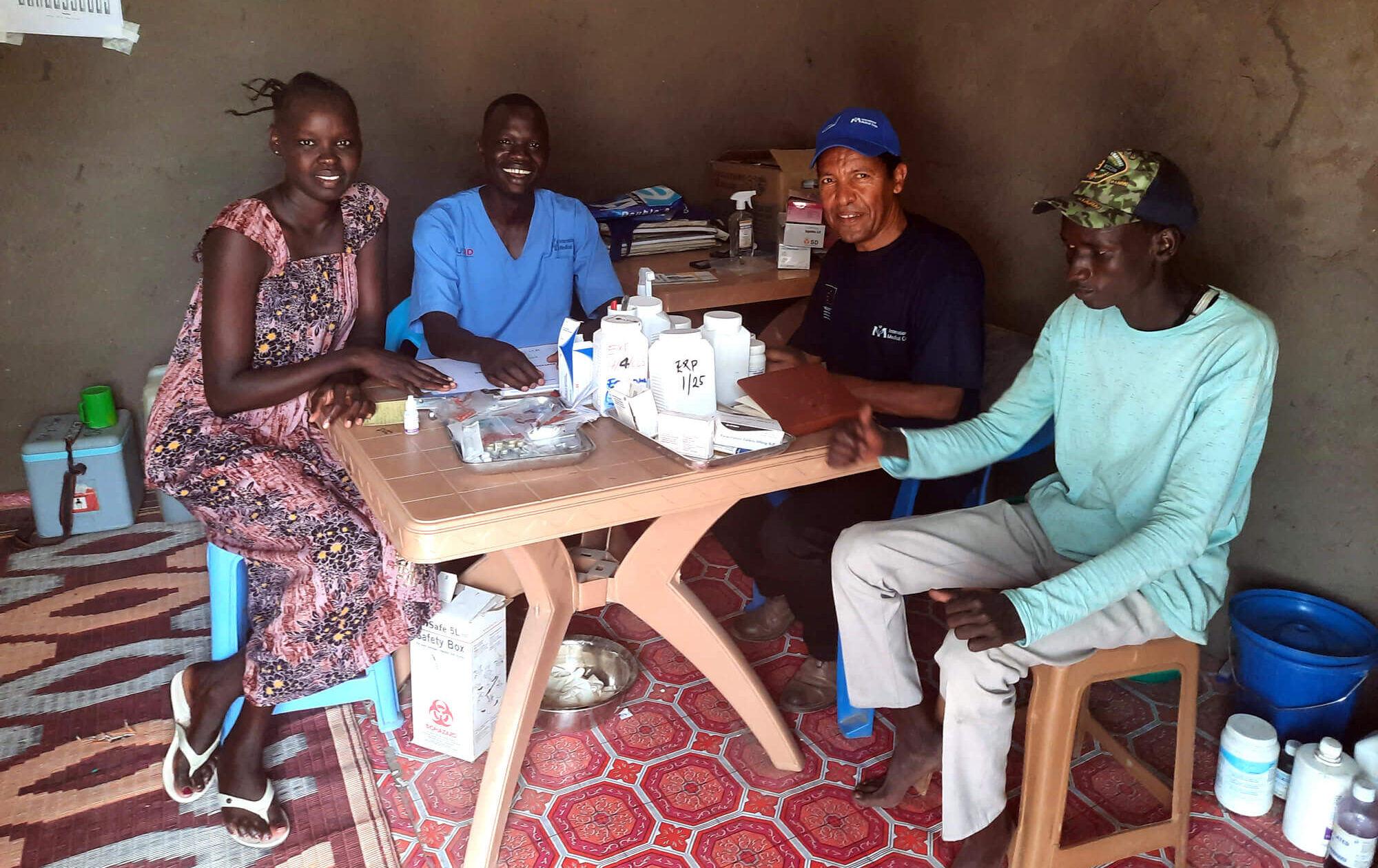
“After years with International Medical Corps, I’ve learned the value of traveling to other country missions and exchanging best practices and ideas,” explains Eastman. “The TDY Initiative provides this opportunity to other staff members and country teams, so they can not only share their knowledge and skills with their South Sudanese colleagues but learn valuable lessons to implement in their home countries.”
To begin the new initiative, Eastman partnered with Sasi Luxmanan, Country Director in South Sudan at the time and International Medical Corps’ current Country Director in Sudan.
“While serving as the Country Director in South Sudan, I saw how important it was to have colleagues with different skill sets and experiences work together to create innovative solutions,” he says. “I’m grateful to International Medical Corps for seeing the value in this initiative, as it also provides an opportunity for country directors to exchange ideas and concepts across the platforms within the organization. I hope it will continue and grow to include more countries and regions where we operate.”
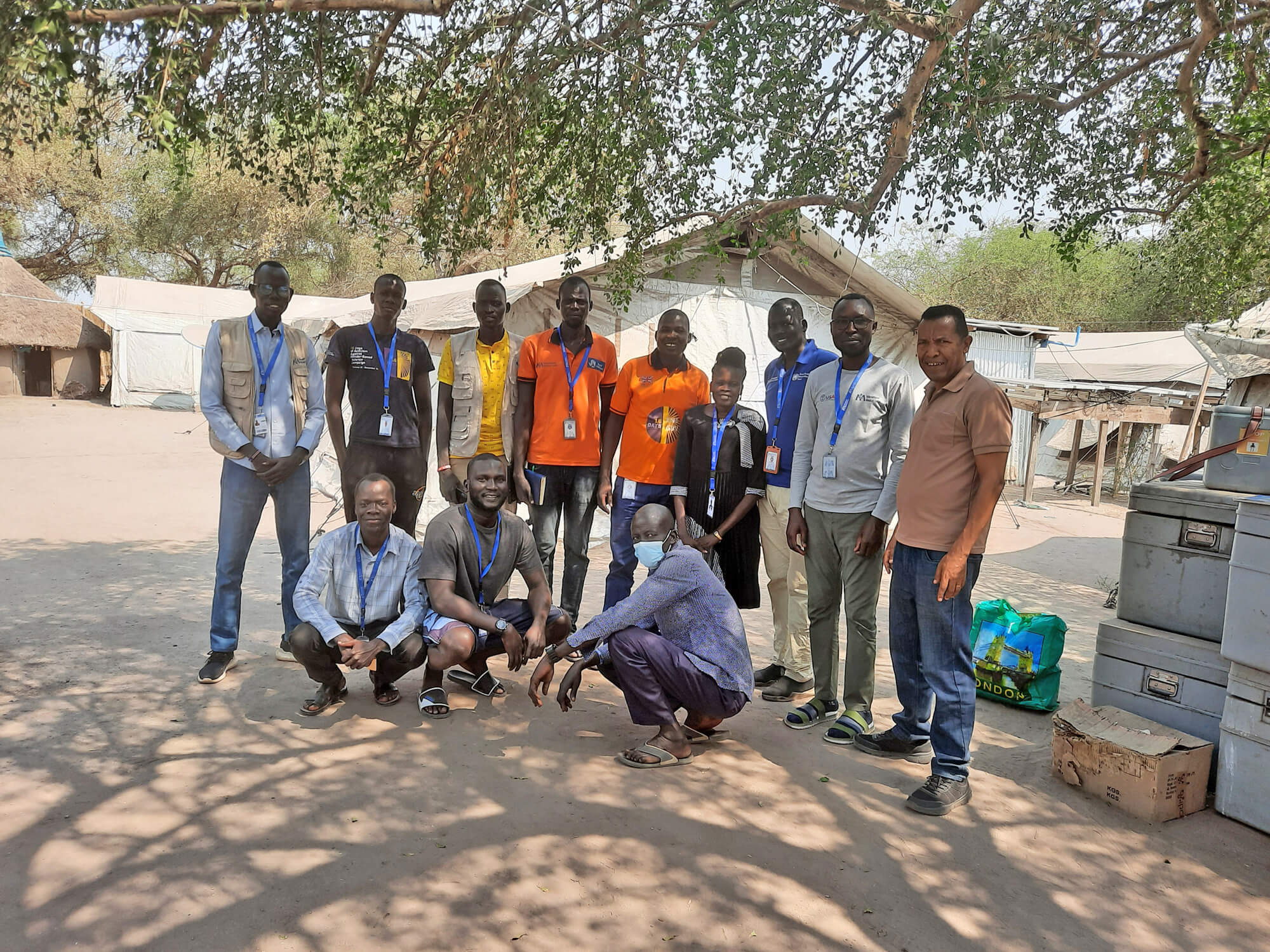
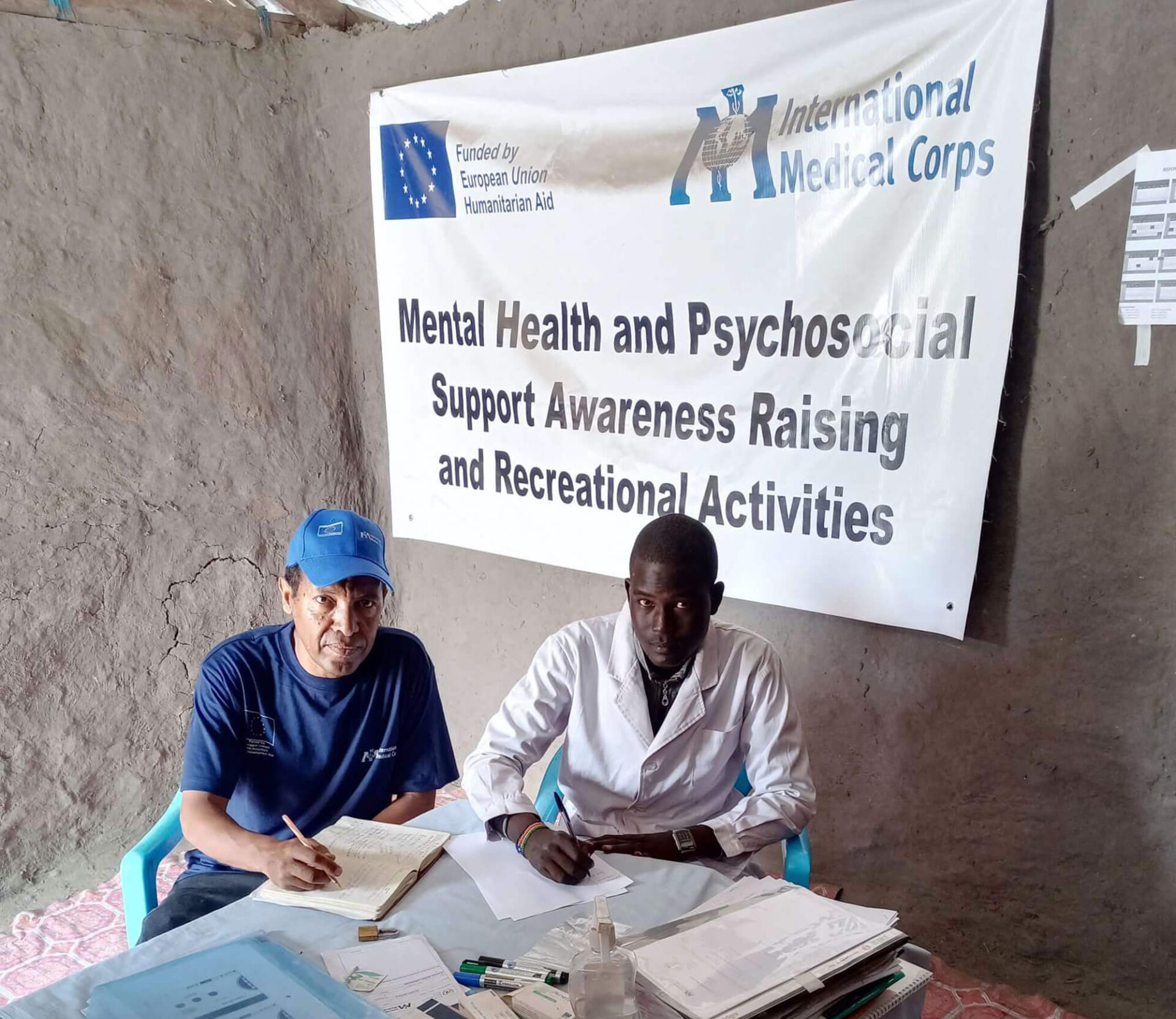
Bekele’s experience in South Sudan is an excellent example of how well the program can work.
“By facing new challenges, including working in a hard-to-reach area in a different country, and finding solutions to these challenges with my South Sudanese colleagues, I’ve grown not only as an International Medical Corps employee but as a person,” explains Bekele. “I believe that everyone benefits from getting outside of their comfort zone, learning how to communicate with new team members and working with teams from different backgrounds and local leaders from different cultures.”
Ahmed-kheyr Moalim Mohamud, Field Site Manager in Somalia, traveled to South Sudan for three months as part of the TDY Initiative and shared similar insights. He also flew to Juba before taking a UNHAS helicopter flight to Nyal, where he served as a Program Manager. Moalim Mohamud explained how honored he was to receive this assignment—and to help another African country that is suffering.
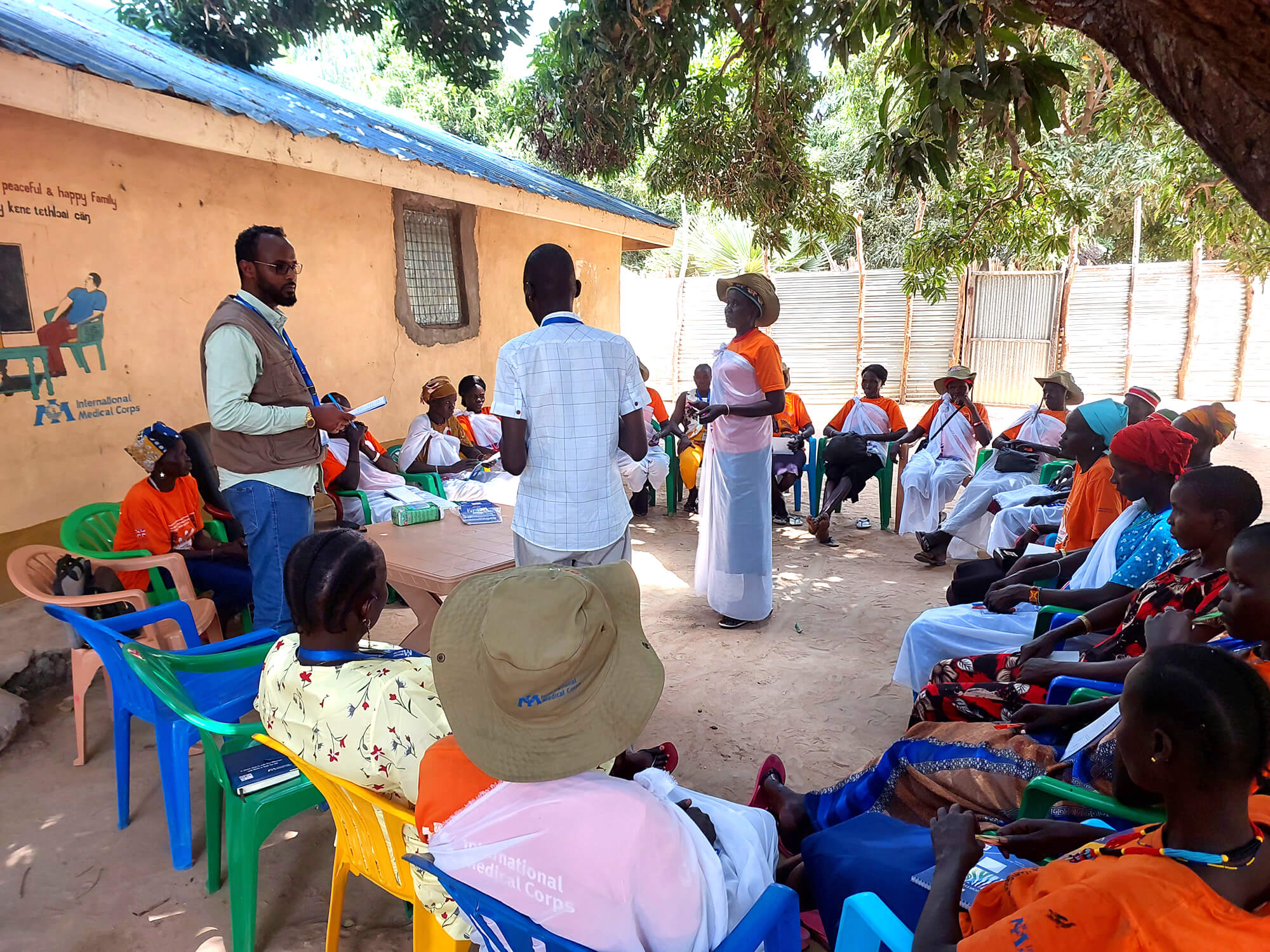
“I have never seen the magnitude of hunger and need as I did in South Sudan,” remembers Moalim Mohamud. “Severe droughts, decades of conflict and flooding in low-lying regions along the Nile have led to extreme conditions. My country, Somalia, has gone through many of the same challenges. As a Somali, it is an honor to help another African country that has suffered from so many natural and man-made calamities.”
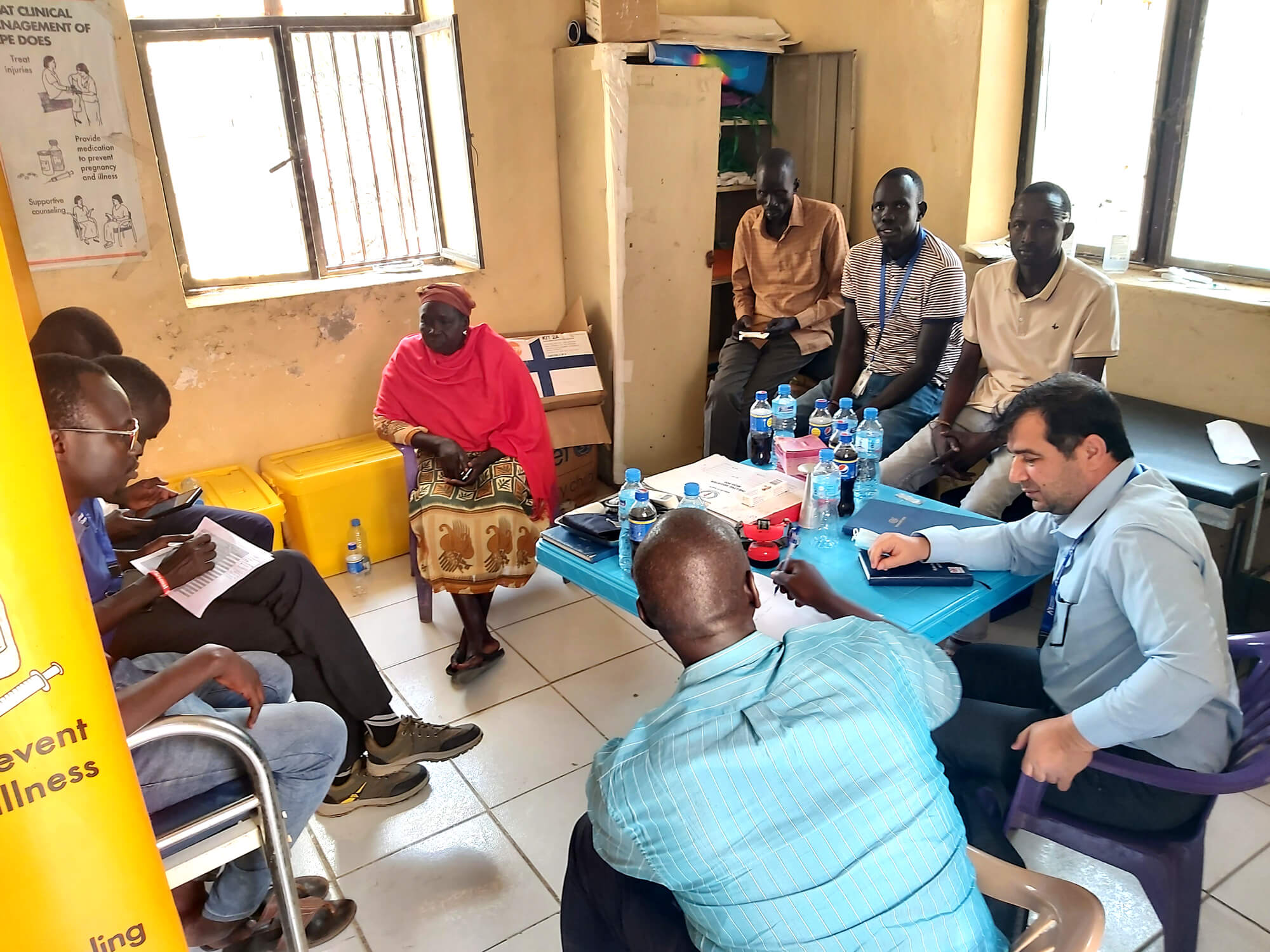
Dr. Ebadullah Hedayat traveled from Afghanistan to work in South Sudan for two months. In Afghanistan, he is the Senior Medical Coordinator covering the health sector, including our community health programs and mobile medical teams. While in South Sudan, he served as a Health Quality Specialist, visiting health facilities, writing detailed assessments and developing improvement plans to help the country team provide healthcare services more efficiently.
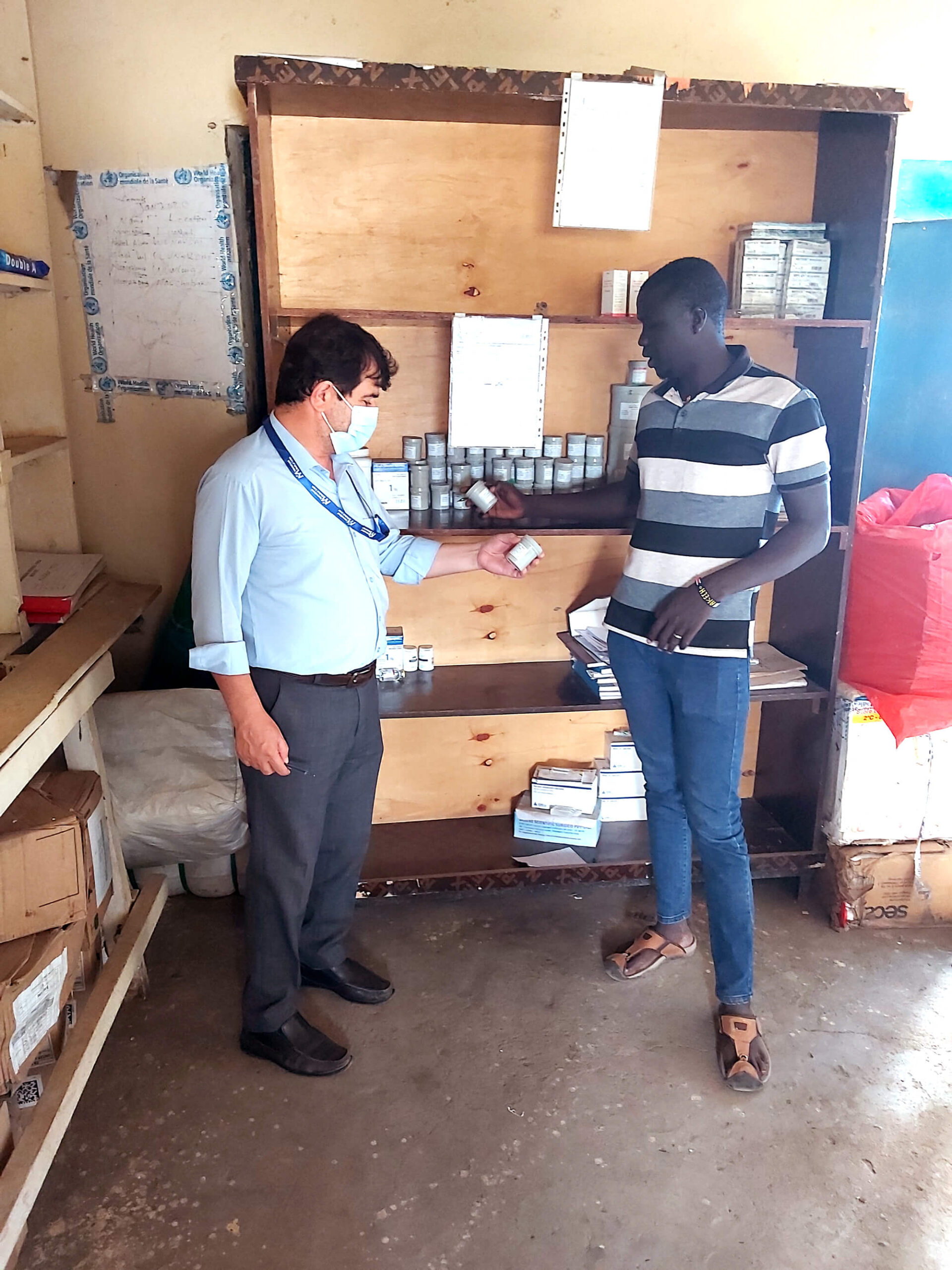
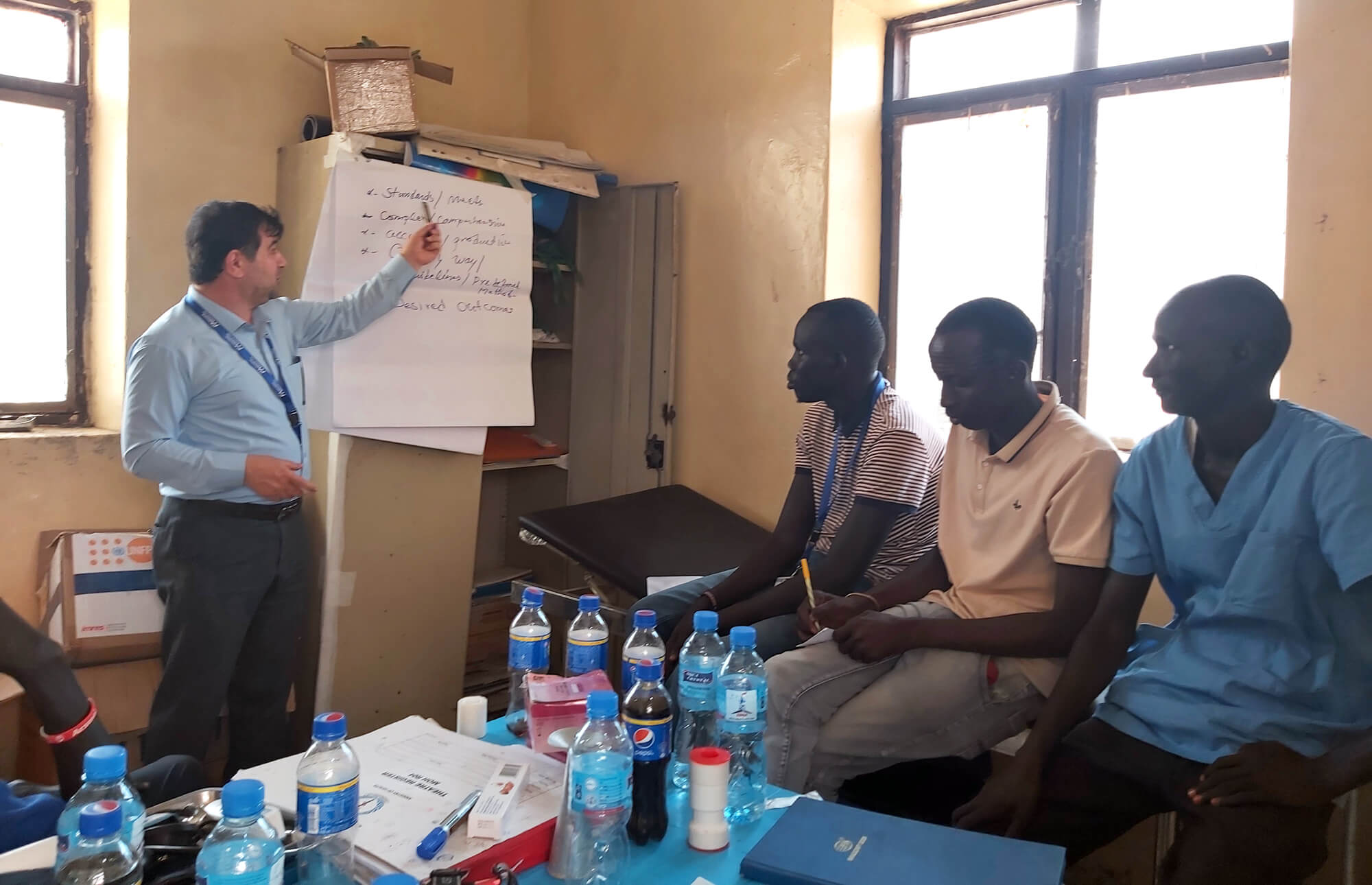
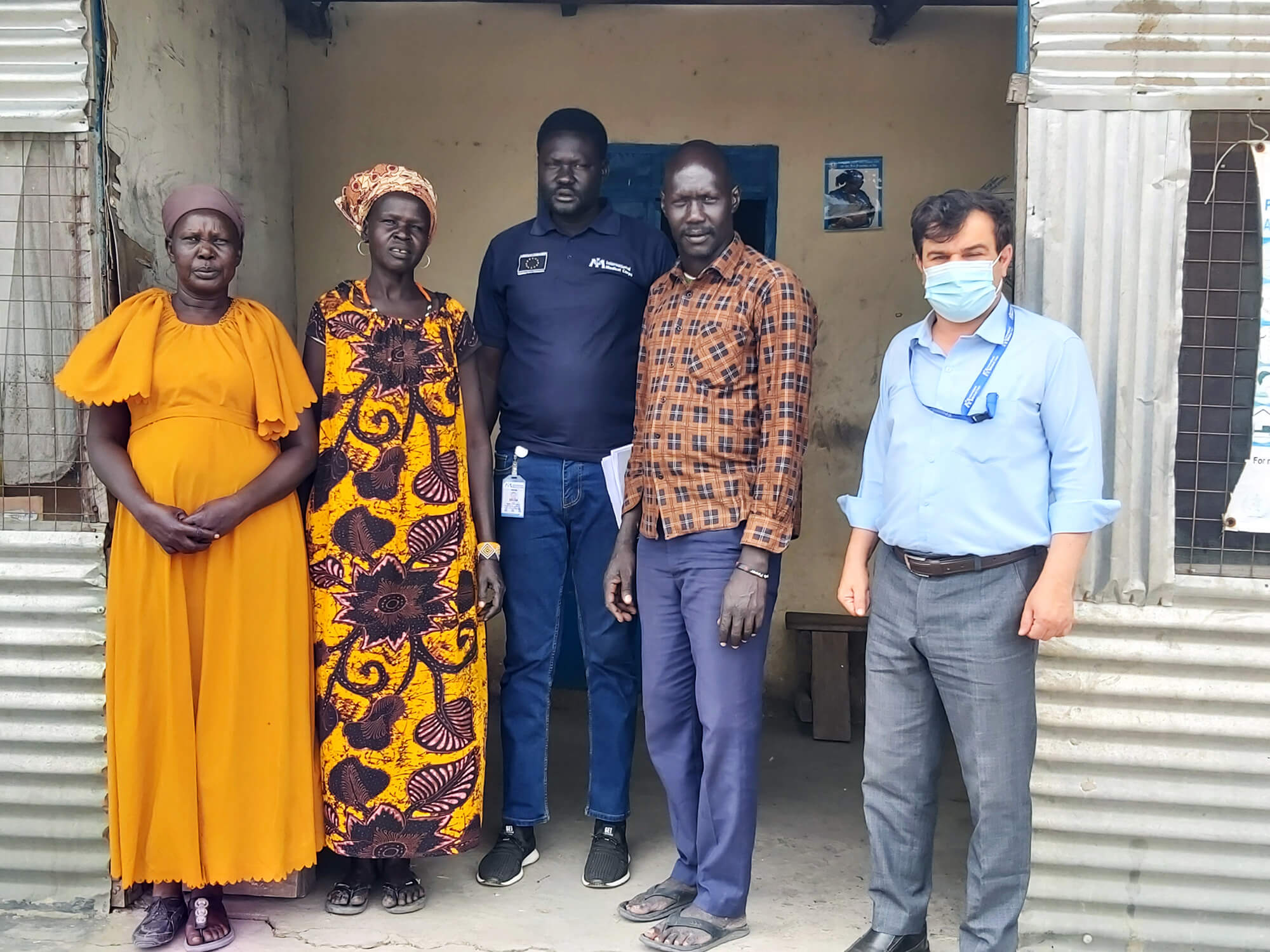
“Through this experience, I’ve learned that other countries and their challenges aren’t as different as I expected,” says Dr. Hedayat. “Though the policies and health systems may be different, I was able to use my skills and knowledge to help others. And this experience expanded my understanding of what is possible in humanitarian work. Now I feel more prepared to serve in other nations.”
Dr. Bhisham Kotak, Program Director in Pakistan, had a similar experience. He has been with International Medical Corps for more than a decade, serving as a healthcare expert and managing various programs in the country. Dr. Kotak spent two months in Juba, helping to accelerate program development and implementation by, among other things, training staff members and strengthening relationships with local partners.
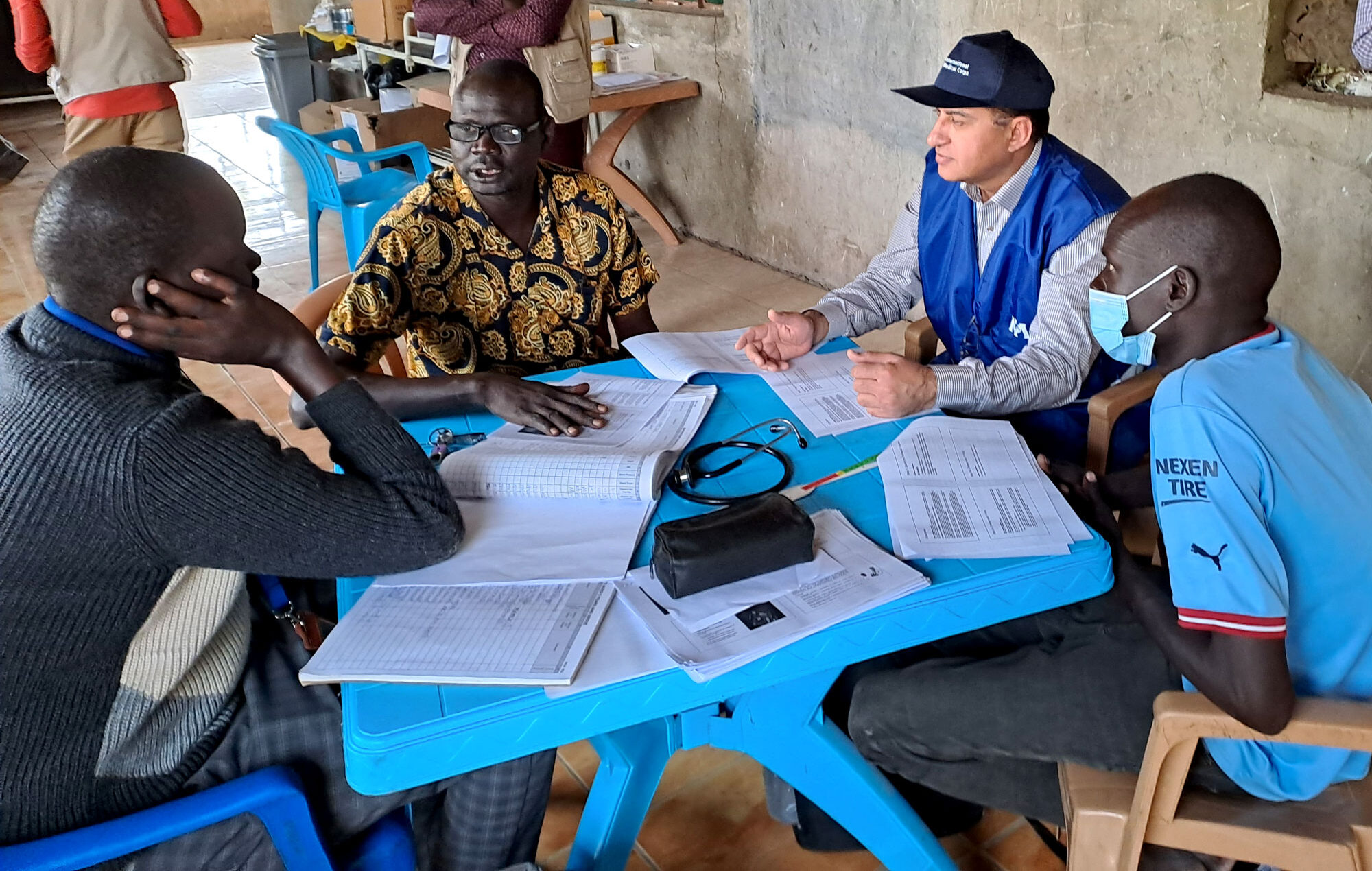
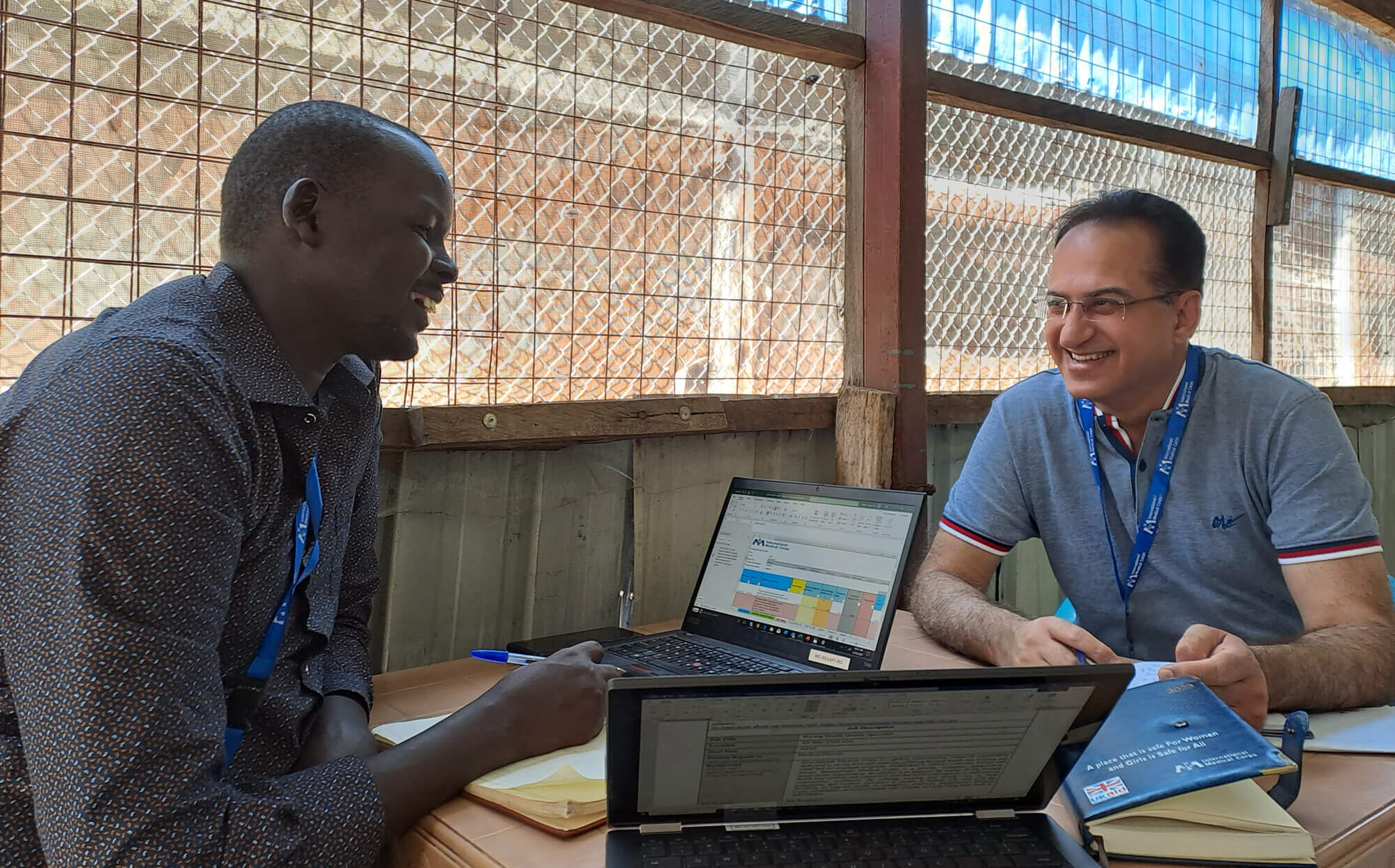
“The TDY Initiative gives us the opportunity to share urgently needed knowledge and experiences, and it fosters essential teambuilding skills,” explains Dr. Kotak, “Working with my colleagues in South Sudan, I’ve taken on new challenges. Together, we’ve strengthened in-country program coordination and provided valuable training to frontline staff members.”
The TDY Initiative will continue in South Sudan based on needs throughout the country. Eastman says he hopes the program will expand to other countries and regions in the coming years.
